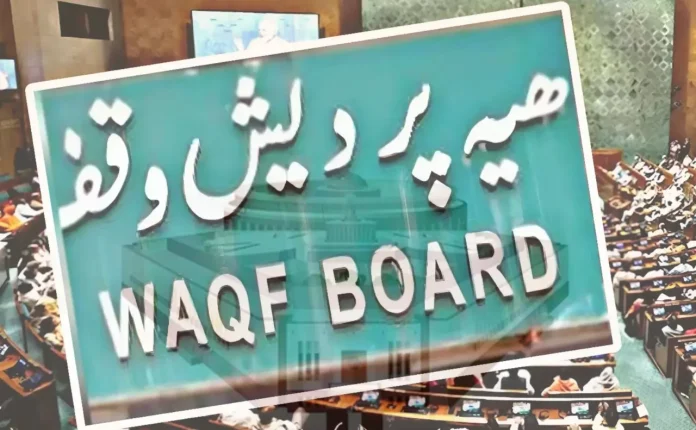Bhopal — The Madhya Pradesh Waqf Board received a significant legal boost after the Madhya Pradesh High Court dismissed a petition challenging the auction process of agricultural Waqf land leases, declaring the board’s procedure lawful, reported the NDTV.
This verdict marks a key milestone for the Board, which has been under scrutiny amidst national-level tensions over the Waqf Amendment Bill, currently pending judgment in the Supreme Court. With the High Court ruling in its favor, the Board now plans to move ahead with leasing land to farmers through a transparent bidding process.
The division bench of Justice Vivek Agarwal and Justice Vivek Jain ruled that the auctioning of agricultural land by the Waqf Board was conducted in compliance with legal provisions. The petition, filed by Amir Azad Ansari and others, raised two main objections — the signing authority of Dr. Farzana Gajala, who is not a full-time CEO, and the claim that only mutawallis (caretakers) have the right to conduct auctions. The court dismissed both arguments, stating that Dr. Gajala’s appointment under Section 23 of the Waqf Act is legitimate, and her “temporary” status reflects the term of service, not her authority.
Reacting to the decision, Waqf Board Chairman Sanwar Patel expressed immense satisfaction, saying Madhya Pradesh is likely the first state where the High Court has validated a state government policy regarding Waqf properties. He said, “Those who had illegally occupied Waqf lands and were profiting from them will now face legal consequences.”
He also emphasized that this judgment strengthens the legitimacy of the Board’s actions and sends a clear message to land mafias exploiting Waqf assets under the guise of religious authority.
Patel further stated that the Board will now begin leasing agricultural land to farmers as per Government of India guidelines, ensuring full transparency. The revenue generated from these leases will be used for public welfare in line with the original charitable purpose of Waqf properties, especially benefiting the underprivileged.
With the legal hurdle cleared, the Madhya Pradesh Waqf Board plans to scale its efforts across the state, making its assets productive while safeguarding them from illegal encroachments. Patel termed the court’s decision as “philanthropic,” reiterating that Waqf is meant for public good and should not be misused for personal enrichment.




